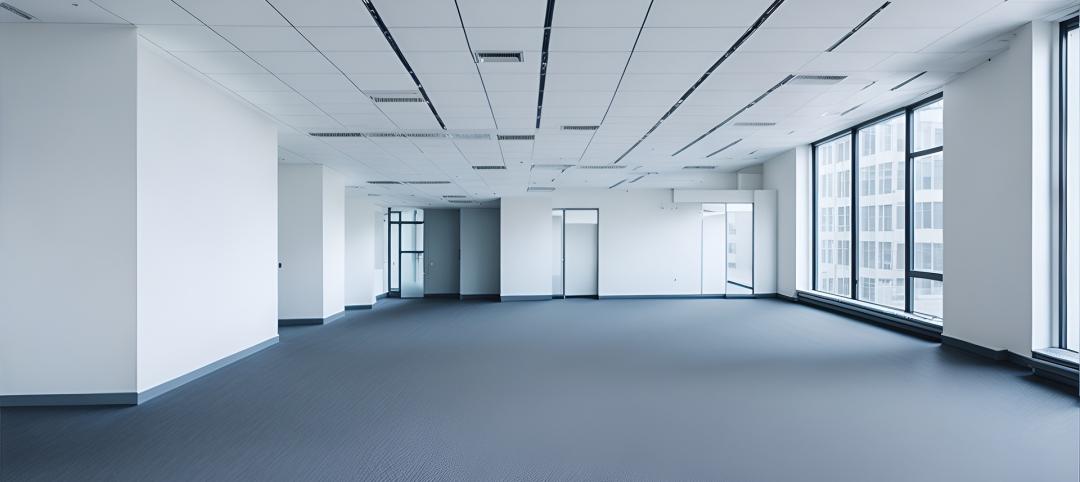3M is playing an important role in the recently announced Better Buildings Challenge, an effort to grow the country's clean energy economy. The initiative aims to improve energy efficiency in commercial buildings by 20% by the year 2020, a move that is projected to reduce energy bills for American businesses by approximately $40 billion per year and to create more than 100,000 jobs.
As a partner in the challenge, 3M has committed to reduce energy use by 25% in 78 of its plants, encompassing nearly 38 million-sf of building space. The company has already achieved significant gains; in 2011 alone, 3M improved energy efficiency in its operations globally by 8.9% compared to the same period last year, and avoided more than $43 million in energy costs. Additionally, more than 150 employee-inspired energy projects helped the company save nearly $7.7 million.
Within 3M, the Renewable Energy Division directs its efforts toward helping customers meet their energy targets by providing energy-saving solutions. 3M Renewable Energy creates products and technologies to advance the solar and wind industries, as well as energy conservation window films for the commercial building sector. These technologies hold significant promise in helping 3M and other participants in the challenge increase energy efficiency. Notable products in 3M's line include:
- Sun Control Window Films, which use non-metalized nano-technology to create reflectivity that's actually lower than glass. These spectrally-selective interior and exterior films reject up to 97 percent of the sun's heat-producing infrared light to help keep buildings cooler.
- Cool Mirror Film 330, a unique, multilayer optical film designed for low concentration, crystalline silicon photovoltaic (low X CPV) installations. The films reflect only the wavelengths of light that can be absorbed by solar cells, substantially reducing the amount of solar energy that can degrade the performance of CPV systems.
"3M has cut its absolute worldwide greenhouse gas emissions by 72 percent from 1990 to 2010," said Tim Thornton, director of 3M Renewable Energy Division's Energy Conservation business. "We are proud to take part in this challenge and to share our knowledge with others, so we can all move toward achieving this ambitious goal." BD+C
Related Stories
Adaptive Reuse | Sep 12, 2024
White paper on office-to-residential conversions released by IAPMO
IAPMO has published a new white paper titled “Adaptive Reuse: Converting Offices to Multi-Residential Family,” a comprehensive analysis of addressing housing shortages through the conversion of office spaces into residential units.
Mixed-Use | Sep 10, 2024
Centennial Yards, a $5 billion mixed-use development in downtown Atlanta, tops out its first residential tower
Centennial Yards Company has topped out The Mitchell, the first residential tower of Centennial Yards, a $5 billion mixed-use development in downtown Atlanta. Construction of the apartment building is expected to be complete by the middle of next year, with first move-ins slated for summer 2025.
Healthcare Facilities | Sep 9, 2024
Exploring the cutting edge of neuroscience facility design
BWBR Communications Specialist Amanda Fisher shares the unique considerations and challenges of designing neuroscience facilities.
Office Buildings | Sep 6, 2024
Fact sheet outlines benefits, challenges of thermal energy storage for commercial buildings
A U.S. Dept. of Energy document discusses the benefits and challenges of thermal energy storage for commercial buildings. The document explains how the various types of thermal energy storage technologies work, where their installation is most beneficial, and some practical considerations around installations.
Office Buildings | Sep 5, 2024
Office space downsizing trend appears to be past peak
The office downsizing trend may be past its peak, according to a CBRE survey of 225 companies with offices in the U.S., Canada, and Latin America. Just 37% of companies plan to shrink their office space this year compared to 57% last year, the survey found.
University Buildings | Sep 4, 2024
UC San Diego’s new Multidisciplinary Life Sciences Building will support research and teaching in both health and biological sciences
The University of California San Diego has approved plans for a new Multidisciplinary Life Sciences Building, with construction starting this fall. The 200,000-sf, six-level facility will be the first building on the UC San Diego campus to bridge health science research with biological science research and teaching.
Codes and Standards | Sep 3, 2024
Atlanta aims to crack down on blighted properties with new tax
A new Atlanta law is intended to crack down on absentee landlords including commercial property owners and clean up neglected properties. The “Blight Tax” allows city officials to put levies on blighted property owners up to 25 times higher than current millage rates.
Resiliency | Sep 3, 2024
Phius introduces retrofit standard for more resilient buildings
Phius recently released, REVIVE 2024, a retrofit standard for more resilient buildings. The standard focuses on resilience against grid outages by ensuring structures remain habitable for at least a week during extreme weather events.
Construction Costs | Sep 2, 2024
Construction material decreases level out, but some increases are expected to continue for the balance Q3 2024
The Q3 2024 Quarterly Construction Insights Report from Gordian examines the numerous variables that influence material pricing, including geography, global events and commodity volatility. Gordian and subject matter experts examine fluctuations in costs, their likely causes, and offer predictions about where pricing is likely to go from here. Here is a sampling of the report’s contents.
Adaptive Reuse | Aug 29, 2024
More than 1.2 billion sf of office space have strong potential for residential conversion
More than 1.2 billion sf of U.S. office space—14.8% of the nation’s total—have strong potential for conversion to residential use, according to real estate software and services firm Yardi. Yardi’s new Conversion Feasibility Index scores office buildings on their suitability for multifamily conversion.

















